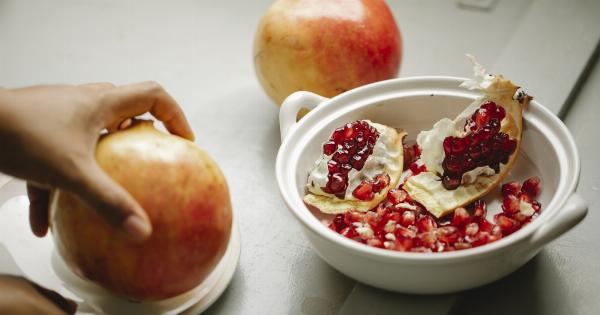Many people often experience bloating which can be really uncomfortable. It’s a condition where your stomach feels full and tight which makes it uncomfortable and difficult to move around. One of the main causes of bloating is the food we eat.
Therefore, it’s important to take note of the foods which cause bloating and learn how to replace them with healthier alternatives. This article highlights 30 belly-bloating foods and their healthier replacements.
1. Carbonated Beverages
Carbonated beverages such as soda drinks contain carbon dioxide gas which causes bloating. These also contain high levels of sugar and empty calories that can contribute to weight gain and other health conditions.
You can replace these drinks with water or unsweetened iced tea.
2. Dairy Products
Dairy products like milk, cheese, and ice cream contain lactose which many people are intolerant to. This can cause digestive discomfort and bloating. You can replace dairy products with plant-based alternatives like almond or soy milk and vegan cheese.
3. Processed Foods
Processed foods like chips, crackers, and cookies contain high levels of salt, sugar, preservatives, and unhealthy fats that can cause bloating. You can replace processed foods with whole, natural foods like fruits, vegetables, and nuts.
4. Fried Foods
Fried foods like french fries, fried chicken, and potato chips contain high amounts of fat which can cause bloating and weight gain. You can replace fried foods with baked or grilled alternatives which contain less fat and calories.
5. Beans
Beans are a great source of protein and fiber but also contain oligosaccharides, a type of sugar, which can be difficult for some people to digest. This can cause bloating and gas.
You can replace beans with lentils which contain less oligosaccharides and have similar nutritional value.
6. Broccoli
Broccoli is a nutritious vegetable but can also cause bloating due to its high fiber content. You can replace broccoli with asparagus which contains a similar nutritional value but with less gas causing properties.
7. Onions
Onions contain fructose which can be difficult to digest for many people, causing bloating and gas. You can replace onions with chives or garlic which contain less fructose and have similar flavor profiles.
8. Apples
Apples are high in fiber and fructose, both of which can cause bloating. You can replace apples with bananas which contain less fructose and have a similar nutritional value.
9. Artichokes
Artichokes contain fructans, a type of carbohydrate that can cause bloating and gas. You can replace artichokes with spinach which contains a similar nutritional value but with less fructans.
10. Cabbage
Cabbage is a nutritious vegetable but can also cause bloating due to its high fiber content. You can replace cabbage with kale which contains a similar nutritional value but with less gas causing properties.
11. Whole Wheat Bread
Whole wheat bread contains gluten which can be difficult to digest for individuals with gluten sensitivity or celiac disease. This can cause bloating and digestive issues. You can replace whole wheat bread with gluten-free bread made from rice or quinoa.
12. Beer
Beer is a carbonated beverage that can cause bloating and gas due to its high yeast content. You can replace beer with wine or spirits which contain less yeast and carbonation.
13. Sugar-Free Products
Sugar-free products like gum and candy contain artificial sweeteners which can cause bloating, diarrhea, and gas. You can replace sugar-free products with natural sweeteners like honey or maple syrup.
14. High Sodium Foods
High sodium foods like canned soups, chips, and processed meats can cause bloating and water retention. You can replace high sodium foods with whole, natural foods like fresh fruits and vegetables which contain less sodium.
15. Avocados
Avocados are healthy fruits that contain healthy fats but can be difficult to digest for some people. This can cause bloating and gas. You can replace avocados with olives or nuts which contain similar nutrients and less gas-causing properties.
16. Corn
Corn is a nutritious grain but can be difficult to digest due to its high fiber content. This can cause bloating and gas. You can replace corn with quinoa which contains similar nutrients and less gas-causing properties.
17. Peppers
Peppers contain capsaicin which can cause heartburn and bloating for some people. You can replace peppers with herbs like cilantro or parsley which contain similar flavors but less gas-causing properties.
18. Artificial Sweeteners
Artificial sweeteners like aspartame and sucralose can cause bloating, gas, and diarrhea. You can replace artificial sweeteners with natural sweeteners like stevia or monk fruit.
19. Ice Cream
Ice cream is a sweet treat that contains sugar, lactose, and fat which can cause bloating and weight gain. You can replace ice cream with frozen yogurt or banana ice cream made from natural ingredients.
20. Spicy Foods
Spicy foods like chili peppers and hot sauces can cause heartburn and bloating. You can replace spicy foods with herbs like ginger and turmeric which have anti-inflammatory properties and can aid digestion.
21. Nuts
Nuts are a nutritious snack but can be difficult to digest for some people due to their high fat content. This can cause bloating and discomfort. You can replace nuts with seeds like chia or flax which contain similar nutrients and less fat.
22. Rye
Rye contains gluten which can be difficult to digest for individuals with gluten sensitivity or celiac disease. This can cause bloating and digestive issues. You can replace rye with gluten-free grains like quinoa or rice.
23. Watermelon
Watermelon is a hydrating fruit but can cause bloating and gas due to its high fructose content. You can replace watermelon with berries like blueberries or strawberries which contain less fructose and more fiber.
24. Soy
Soy contains oligosaccharides which can be difficult to digest for some people, causing bloating and gas. You can replace soy with plant-based alternatives like almond or coconut milk and tofu made from chickpeas or lentils.
25. Cauliflower
Cauliflower is a nutritious vegetable but can also cause bloating due to its high fiber content. You can replace cauliflower with zucchini which contains a similar nutritional value but with less gas causing properties.
26. Mushrooms
Mushrooms contain compounds that can be difficult to digest for some people, causing bloating and gas. You can replace mushrooms with vegetables like carrots or pumpkin which contain similar nutrients and less gas-causing properties.
27. Canned Foods
Canned foods like beans and vegetables contain high levels of sodium and preservatives which can cause bloating and water retention. You can replace canned foods with fresh or frozen fruits and vegetables which contain less sodium and preservatives.
28. Peaches
Peaches are sweet fruits but can cause bloating and gas due to their high fructose content. You can replace peaches with mangoes which contain less fructose and more fiber.
29. Pistachios
Pistachios are a nutritious snack but can be difficult to digest due to their high fat content. This can cause bloating and discomfort. You can replace pistachios with almonds which contain similar nutrients and less fat.
30. Artificial Flavors and Colors
Artificial flavors and colors can cause bloating, gas, and digestive issues. You can replace artificial flavors and colors with natural flavors and colors like fruit juices and herbs.































